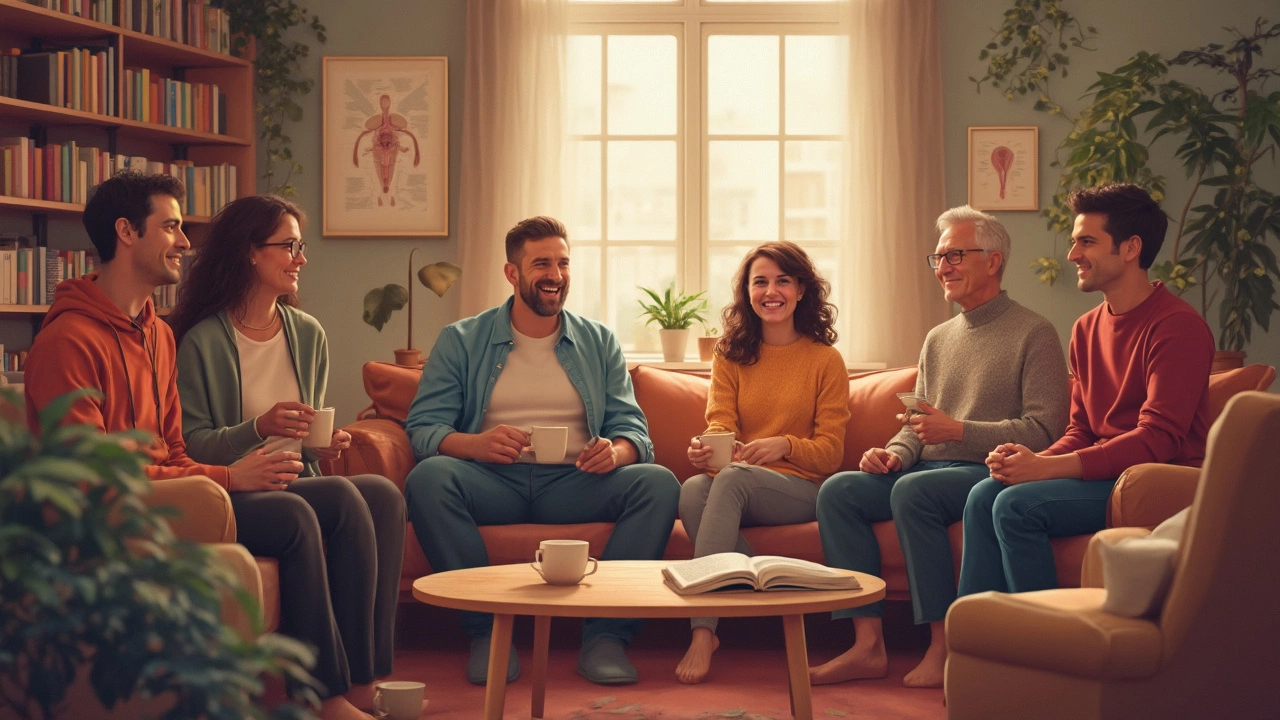People assume adults know all about sex—how it works, what feels good, what’s safe. Truth is, loads of us are just winging it with half-remembered tips from school (or no tips at all) and plenty of awkward guesswork. Even if you think you’ve got it all figured out, the truth is, sex changes with age, relationships, and life events. Bodies transform. So do dreams, desires, and boundaries. Pretending otherwise just leaves everyone lost in the dark, missing out on pleasure and connection. There’s a reason curiosity is the best bedroom accessory you’ll ever own.
Why Sex Education Never Really Ends
Remember those mortifying biology classes in high school? For many of us, that was supposed to be the one and only official chat about sex. But imagine if we only learned about nutrition when we were fifteen and never picked up a new recipe, tried a new food, or adjusted our diets as we aged. That would leave us eating plain pasta for decades because it was the first thing we learned. The same logic should go for sex.
While stat after stat shows most adults think they're done learning about intimacy once they reach a certain age, research doesn’t agree. A 2023 report from the Kinsey Institute found more than 65% of people over 30 discovered something new about their bodies or desires that changed their sex lives—after age 30! Hormones shift, partners change, mental health has its ups and downs, and technology grows faster than anyone’s imagination. Even solo, what feels thrilling at 25 can be totally different at 40. So why stop learning?
And let’s get real—childhood sex ed barely scratched the surface. Consent, pleasure, gender and orientation, dealing with pain or anxiety, kink, sexting, privacy, sexual confidence, post-baby changes, long-term monogamy (or not), and tackling boredom—none of this gets proper airtime when you’re fifteen. And if it did, would you have listened? Actual real-world sexual health is a lifelong journey, and the stories you tell yourself about what ‘good’ sex should look like need updating. If you want to feel present and empowered, leveling up your knowledge is key.
What about the classic myth that you’re “too old”? Tell that to the 76-year-old woman who recently discovered she enjoyed something new thanks to a podcast on sexual health. Shame and silence don’t do your body or your relationships any favors. Being open to learning means you’re actually embracing this messy, delightful part of being human.

Breaking Down Taboos: The Benefits Of Asking, Sharing, And Exploring
If you’ve ever whispered a question to your friends after a few glasses of wine or Googled “is this normal?” at midnight, you’re not alone. Sex is full of myths, half-truths, and stuff people just won’t talk about. But dodging honest conversations only keeps you from having the kind of sex you actually want.
Let’s be honest: even adults face a ton of shame. The stigma around asking for help—especially as you get older or after major life shifts like childbirth, menopause, or a new diagnosis—makes people bottle up worries they should never have to face alone. Last year, I ended up in a laughing-then-teary conversation about arousal with Martin, my spouse. Turns out, we both thought the other person wasn’t as interested as before. A quick honest chat, after reading an article about how arousal changes with age, completely rebooted our connection.
Conversations like that really do matter. Couples who talk openly about their desires, fears, and boundaries tend to report way better satisfaction, according to a large study published in The Journal of Sex Research in 2021. The same goes for solo exploration—knowing what feels good and being able to tell a partner (or just treat yourself) can transform sex from routine to exhilarating.
It’s not just about heart-to-hearts, either. Sometimes, you need expert help. Whether it’s a doctor, a therapist, or even an open-minded sex educator, having a pro weigh in can clear up misconceptions or address things like pain, loss of libido, or mismatched expectations—stuff you often can’t solve alone. Even learning from others’ experiences can open up new possibilities. Ever wondered what it’s actually like to talk with experienced sex workers? Many advocates in that community talk about the importance of shame-free education and healthy communication, lessons anyone can benefit from, no matter your background.
Book clubs, workshops, podcasts, and online forums offer hands-on, real talk for every kind of grown-up learner. The world is brimming with resources that didn’t exist even ten years ago. These spaces are filled with real questions—sometimes surprisingly universal ones! The more we break open these discussions, the more we all learn.

Sexual Wellbeing As Self-Care: Making It Practical, Positive, And Personal
Think about the last time you updated your skincare, fitness, or diet routine. Probably more recently than your approach to sex, right? Treating your sexual wellbeing as an essential form of self-care doesn’t just spice things up—it can make a genuine difference in your mood, confidence, physical health, and connection with yourself and others.
Let’s get specific. While internet culture can make it seem like “sex tips” are just for clickbait, there’s actually science behind a lot of practical advice. For example, the benefits of regular, enthusiastic communication are huge. In one 2022 survey, couples who discussed wants and boundaries at least monthly had up to 45% higher satisfaction rates than those who didn’t discuss sex at all. It might sound awkward, but a standing check-in, even just once every month or two, can keep intimacy alive.
And those routine health checks that most people forget? Getting regular STI screenings—yes, even in monogamous relationships—is smart. STIs don’t always announce themselves, and inconsistent knowledge leaves gaps. The World Health Organization notes that more than 1 million STIs are acquired worldwide every day, most of them in people who thought they “weren’t at risk.” Staying informed means staying safe, and knowing how and when to get tested can remove stress in the bedroom.
Another practical layer: exploring new tools and resources without fearing judgment. Lubes, toys, erotica, and new approaches to pleasure aren’t just for the young or adventurous—they can help with dryness, arousal changes, or even just breaking up the routine. Professionals from the London escorts community often recommend exploring together, asking partners open-ended questions, and giving honest feedback in the moment, not just after the fact.
Is it all about novelty? Not at all. Sometimes, learning more about how your body works, reading up on the science of arousal, or understanding deeply rooted beliefs about sex can give you a whole new appreciation for the basics. Being open to learning doesn’t mean you have to be “edgy” or adventurous if you don’t want to—just that you care about staying connected and curious.
Getting creative with your approach helps, too. Here are a few practical ideas you can try:
- Pick a new book or podcast on sex each month—listen together or solo, then talk about what you found curious or confusing.
- Schedule “no goal” nights, where intimacy is about touch, laughter, and exploration, not a set outcome.
- Follow sex educators or therapists on social media—like Emily Morse or Justin Lehmiller—for trustworthy information and tips.
- Write down one thing you’d like to know or try and bring it up gently with your partner or even a friend.
- Take an online class or workshop—it’s less awkward than you think, and the anonymity can be freeing!
This attitude of “I want to keep learning” lets you stay flexible, so as bodies and relationships change, you can adapt together rather than drift apart. The truth: intimacy and pleasure are way too important to stop learning about. And if you’re ever unsure, remember—nobody has all the answers, every body is different. The more you stay curious, the more confidence and satisfaction you’ll find.
